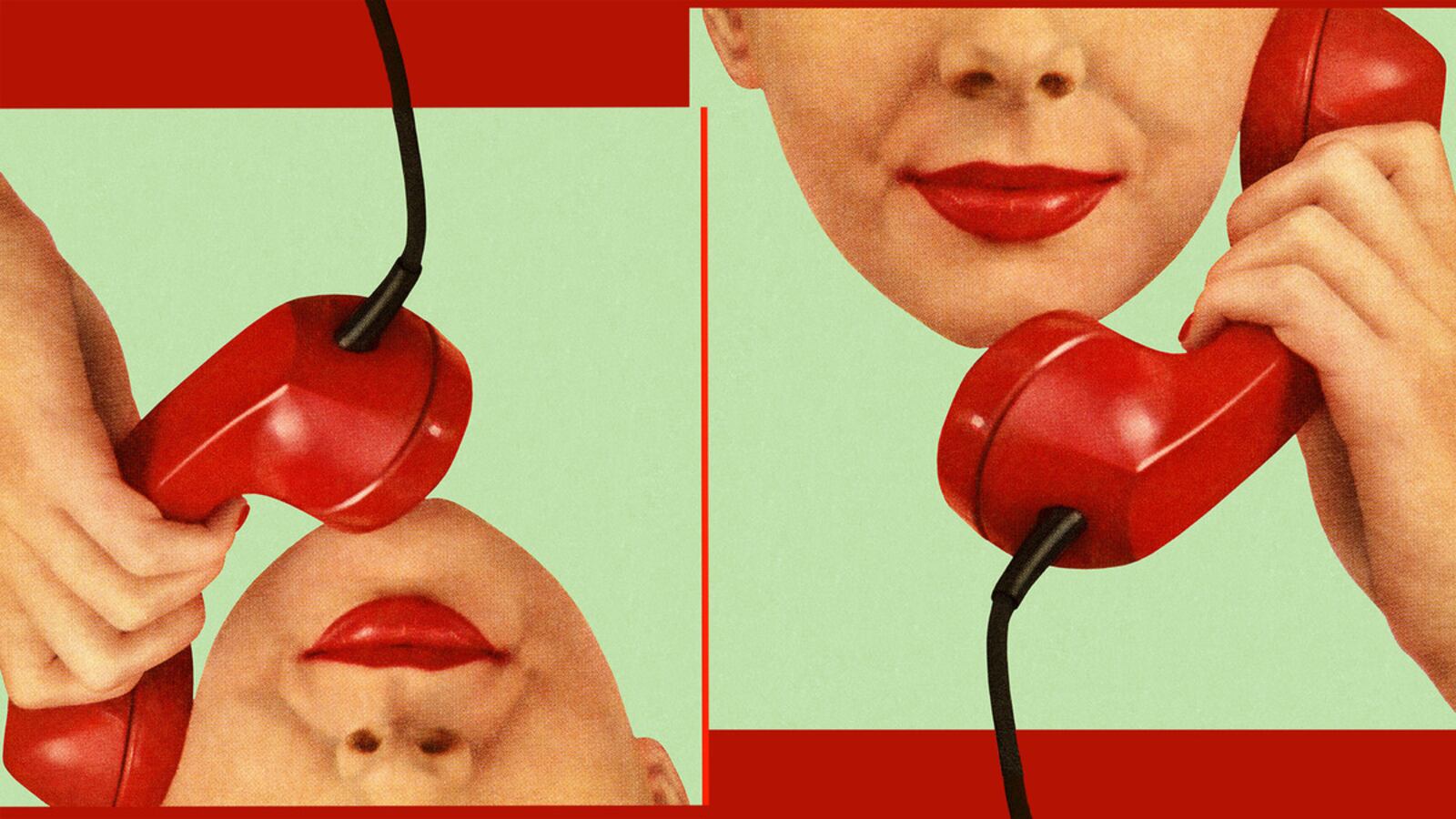What did I do this week? I bought canned food, ordered Camus’ The Plague, and I spoke to four friends per day on the telephone, sometimes for an hour, and conducted perhaps 20 work calls—all from a landline.
As each day of the coronavirus pandemic ticks by, I am struck by my—and our—renewed passion for the telephone. Verizon now has 800 million wireless calls a day in a given week and these individual calls on average each last much longer.
This fact has surprised experts—they imagined that internet use was all that would increase exponentially in the wake of the coronavirus. But it’s also the phone that is a talisman again, its magic returned. It is once again our main attachment to the world, as it was in the 1990s and before. It sometimes reminds me of my youth then, when I had memorized 30 people’s phone numbers.
While we are also certainly more dependent on Zoom and other teleconferencing platforms in quarantine—Hollywood Squares by way of Kafka—I think we are also afraid of depending too much on screens for all of our emotional and even all of our professional contact with others. In fact, I think that fear of screen-dependence is where the reanimated status of the telephone comes in.
Samuel Cohen, a professor at University of Missouri and author of After the End of History: American Fiction in the 1990s, said that back in the 1990s, as now, Americans were both suspicious of technology and entranced by it. He sees that in the novels of that time, he said, “electronic stimulation,” was seen as either “paralyzing and deadly” or as “a potential bringer of peace.”
In the middle of the 1990s, you might watch the same TV show together with your friends while both being on the phone. You might do your freelance passion projects while still hanging on the phone with your friends, at night, after both of your wage-slave day-jobs were over.
The phone had a kind of promise then, even eros. I think of this line from Innocents and Others, Dana Spiotta’s 2016 novel about telephone culture and phone seductions in the 1990s: ‘‘The ring of another person’s phone sounded so hopeful...’’
At night now, I go to sleep thinking of New York City’s future—the place where my child and myself and my parents were all born and raised; where thousands are now dying. I also think of my (to date) 28,000 fellow media workers who have just lost their jobs or been furloughed.
When I wake, I get relief from the phone ringing—the phone is not the old copper wire kind of course, but it’s a landline phone nonetheless, with that device’s more full-bodied ring and the old-fashioned novelty of three different extensions.
My friend says that the moment she calls me, her anxiety levels drop, and her cortisol levels decrease. Today, my phone call with her is how we both understand that today is Thursday and not just, well, Day.
I think it’s no accident that in our quarantine, there are other retro, phone-like intimacies that are flourishing because we are looking for non-screen contact with human beings. How can we get close without touching and without going virtual, becoming simply holograms? One of my colleagues made me a mixtape; a neighbor just dropped off yeast so I could make a pizza. A Facebook friend in Sarajevo says that “whenever we make a nice meal, we share it,” with neighbors, including her long-saved can of foie gras for her birthday.
When I encounter friends in the wild—that is, not on the phone—we speak at a six-foot distance—in public spaces: parks or streets or trails—for surprisingly long periods. Sometimes adults sit down on the ground of parks with each other, like kindergartners, while observing proper social distancing.
In Brooklyn’s Prospect Park, early into quarantine, I ran into a friend while my family biked. She was also riding, with tequila and lime in her water bottle. We stood together talking in our spaced-out increments, clutching our bike handles, at one point, joined, surreally, by our local state representative in jogging clothes.
When I turned a new age during quarantine, I simply walked with six other people, each of us at distance from each other. These exchanges, like the phone, feel to me like a throwback although they are all happening in the present. Even as they occur, in this month, they seem to have a grainy, vintage hue, like they are already memories while they are happening.
The atavism of this moment—past and future combining—is part of why we pick up the phone again and again as we once did, back when there was a popular theory book (by the now MeToo-ed Avital Ronell) called The Telephone Book. Or as we did even earlier, when the band The Replacements told us about a “call-waiting phone in another time zone” in the 1984 song “Answering Machine.”
For years, corporate America trained us to delete sentimentality from our work conversations. I feel myself and others ignoring these restraints now. Now, we tell each near-strangers on the phone to stay healthy or stay safe with surprising intensity. This new alienated intimacy is now my only joy.







